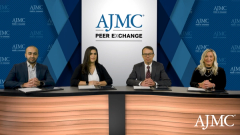
CAR-T Cell Therapy Overview
Dr Matous leads a conversation regarding CAR T-cell therapy for treating multiple myeloma.
Episodes in this series

Jeffrey Matous, MD: Let’s dive into CAR [chimeric antigen receptor] T-cell therapy because I remember a couple of years ago, a patient brought in Parade magazine. Did you guys see the Parade magazine?
Beth Faiman, PhD, APN-BC, CM: Yes, I saw that. The 35-year-old.
Jeffrey Matous, MD: Acure for myeloma or something like that, in Parade magazine. Every patient brings it in.
Zahra Mahmoudjafari, PharmD, MBA, BCOP, FHOPA: Talk about false advertising.
Jeffrey Matous, MD: Anyway, CAR T cell. Help us understand what’s out there that is approved so far for CAR T-cell therapy.
Kirollos Hanna, PharmD, BCPS, BCOP, FACCC: Currently in myeloma, we have 2 approved CAR T-cell therapies. You have to love the name of CAR T-cell therapy, you have ide-cel [idecabtagene vicleucel] and cilta-cel [ciltacabtagene autoleucel]. That’s the simplest way to do it.
Jeffrey Matous, MD: Amen.
Kirollos Hanna, PharmD, BCPS, BCOP, FACCC: The names are idecabtagene vicleucel, as well as ciltacabtagene autoleucel. Your ide-cel studies are your KarMMa studies, and your cilta-cel studies are your CARTITUDE studies. The initial approval, for example, for ide-cel, this was a standard phase 2 trial, open-label study. It was KarMMa by itself, no numbers. They looked at patients who had at least 3 prior lines of therapy. Now the FDA approval is based on at least progressing on 4 prior lines; it must include your standard PI [proteasome inhibitor], IMiD [immunomodulatory drug], CD38. In that study about 21% to 23% of patients, depending on the readout you’re looking at, achieved MRD [minimal residual disease] negativity. That was a great outcome of that study.
The progression-free survival [PFS] was about 9 months estimated from the original readout, which led to the accelerated approval there. Then interestingly, the KarMMa-3 trial, which is set up in a more confirmatory setting and looking at potentially moving it a bit earlier. KarMMa-3 was a phase 3 randomized trial where they did ide-cel vs standard of care. It could be variable regimens based on the line of treatment they’re utilizing it, they used 2 to 4 lines of therapy. Recently at the end of 2022, the PFS benefit was reported with ide-cel vs the standard of care.
I know data are being submitted this year for that. It’s going to be exciting to see what comes out of that in terms of our ide-cel agent. For CARTITUDE or cilta-cel, that was also a very exciting study. These were also patients who were pretty deep into their treatment. I believe the study was also 3 lines of prior therapy. Approval was 4 lines of prior therapy. Ninety eight percent of patients had an overall response rate, which is pretty impressive, unprecedented in terms of being that far into treatment.
Jeffrey Matous, MD: It’s better than Steph Curry shooting a basket from the foul line.
Kirollos Hanna, PharmD, BCPS, BCOP, FACCC: Absolutely. The data are looking very exciting, and I’m pretty confident that CAR T-cell therapy will continue to move earlier in the treatment of myeloma as we start to see these randomized trials trying to move it earlier.
Beth Faiman, PhD, APN-BC, CM: But it’s a big deal to go through CAR T therapy. What you see in these overall response rates, we talked about the MAMMOTH study, when you have triple class-exposed patients or refractory patients, they don’t do well. They confer a poor prognosis, and poor overall survival. The CAR T therapies though require hospitalization. They can get this cytokine release syndrome where their cells explode, and they get fevers and they can have low blood counts, and they can get very sick. You can get this neurotoxicity that can be prolonged. Then you can have these prolonged cytopenias, where now they’re transfusion dependent and they have to get blood or platelet transfusions. Then the long-term infections, we talked about these therapies, they’re working with the T cell, they’re suppressing the plasma cell. What do plasma cells do? They protect you from infection, and now we’re suppressing them forever. And so, infection is a big deal.
These patients need a caregiver. They can get really sick. They have lymphodepletion that you have to get beforehand with bendamustine or fludarabine. I’ve seen some nephrotoxicity in those regimens too, preparatory regimens. It’s a big deal. It’s not a cure, but it’s an effective treatment. They like the KarMMa data that show that if you move the CAR T to an earlier line, you might have less toxicity and possibly longer survival. They compared it to 5 different regimens that we were all talking about, the DARA [daratumumab] and the carfilzomib.
Zahra Mahmoudjafari, PharmD, MBA, BCOP, FHOPA: I think we should take one tiny step back from how amazing the CAR T cells are to acknowledge how little access most centers have to them and therefore, our patients. The CAR T cells are limited to large centers that are primarily transplant centers. Some large centers still don’t have access to the CAR T-cell products because there are manufacturer limitations to onboarding and getting set up, which limits, therefore, access to our patients.
I think while the results are extremely exciting and we do see such amazing response rates, how long do these responses last? We need some more longer-term studies. I can spend all day talking about access to CAR T cells, especially in multiple myeloma. But that has been a major concern, to make sure our patients have access to these therapies in a timely manner is the biggest part.
Transcript edited for clarity.
Newsletter
Stay ahead of policy, cost, and value—subscribe to AJMC for expert insights at the intersection of clinical care and health economics.










